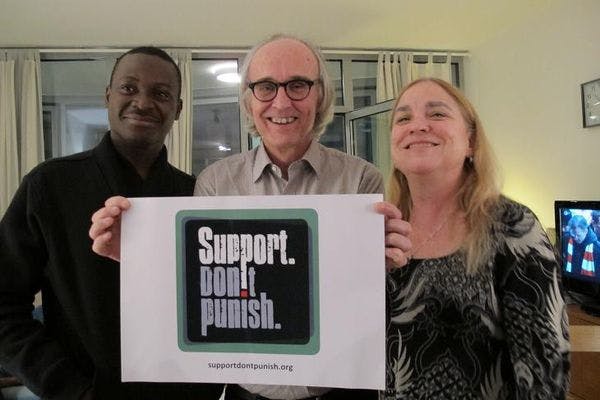CC IDPC SDP Campaign
La reforma de la política de drogas, el movimiento por la reducción de daños y el movimiento por la abolición de la pena de muerte tienen mucho en común
Coincidiendo con el Día Mundial de Acción de la campaña ‘Apoye. No castigue’, la Coalición Mundial contra la Pena de Muerte comparte algunas ideas sobre la Conferencia Internacional de Reducción de Daños de 2019, celebrada en Oporto el pasado mes de abril. Más información, en inglés, está disponible abajo.
26 June is an interesting date for the death penalty abolition movement: it is International Day Against Drug Abuse and Illicit Trafficking, and some countries use it to execute people for drug related offenses, such as China and maybe this year, Sri Lanka. To counter that narrative, the International Drug Policy Consortium as made 26 June a Global Day of Action: “Support. Don’t Punish”, to “reclaim and shift that day’s narrative”. But 26 June is also International Day in Support of Victims of Torture, an equally important day for human rights activists and the death penalty abolition movement.
At a Crossroads
As Naomi Burke-Shyne, Executive Director of Harm Reduction International opened the HR19 conference, she mentioned the death penalty for drug-related offenses and HRI’s latest publication on this subject: “at least 35 countries retain the death penalty for drug offences in law, although UN experts have repeated time and again that it is a clear violation of international human rights law”. Michelle Bachelet, UN High Commissioner for Human Rights concurred in her keynote speech: “I remain concerned about the continuing use of capital punishment for drug offenses in a number of States, and moves towards its re-introduction in others. (…) We strongly recommend States amend their penal codes and no longer impose the death sentence for any crimes, including for drug-related offences.”
During the 2nd Plenary session on Drugs and Beyond: Upholding Human Rights, Sarah Belal, Justice Project Pakistan, presented the plight of Pakistani migrant workers sentenced to death in Saudi Arabia and the inspirational methodology of Justice Project Pakistan to free them: litigation, communication and advocacy. In February 2019, 2000 Pakistani prisoners were released from Saudi jails.
Temas
Regiones
Perfiles relacionados
- World Coalition Against the Death Penalty
